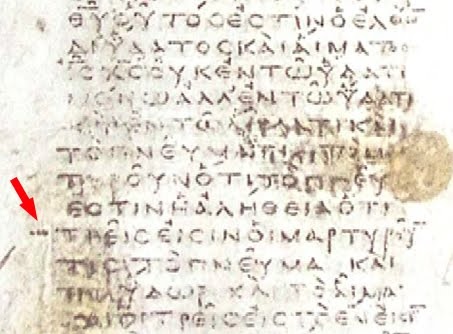chilehed
Veteran
I've heard this nonsense a thousand times. I actually used to believe it.Roman Catholic Bibles have several more books in the Old Testament than Protestant Bibles. These books are referred to as the Apocrypha or Deuterocanonical books. The word apocrypha means “hidden,” while the word deuterocanonical means “second canon.” The Apocrypha/Deuterocanonicals were written primarily in the time between the Old and New Testaments. The books of the Apocrypha include 1 Esdras, 2 Esdras, Tobit, Judith, Wisdom of Solomon, Ecclesiasticus, Baruch, the Letter of Jeremiah, Prayer of Manasseh, 1 Maccabees, and 2 Maccabees, as well as additions to the books of Esther and Daniel. Not all of these books are included in Catholic Bibles.
The nation of Israel treated the Apocrypha / Deuterocanonical books with respect, but never accepted them as true books of the Hebrew Bible. The early Christian church debated the status of the Apocrypha / Deuterocanonicals, but few early Christians believed they belonged in the canon of Scripture. The New Testament quotes from the Old Testament hundreds of times, but nowhere quotes or alludes to any of the Apocryphal / Deuterocanonical books. Further, there are many proven errors and contradictions in the Apocrypha / Deuterocanonicals. Here are a few websites that demonstrate these errors:
The apocrypha contradicts Scripture
What About the Apocrypha
Errors in the Apocrypha
The Apocrypha / Deuterocanonical books teach many things that are not true and are not historically accurate. While many Catholics accepted the Apocrypha / Deuterocanonicals previously, the Roman Catholic Church officially added the Apocrypha / Deuterocanonicals to their Bible at the Council of Trent in the mid 1500s A.D., primarily in response to the Protestant Reformation. The Apocrypha / Deuterocanonicals support some of the things that the Roman Catholic Church believes and practices which are not in agreement with the Bible. Examples are praying for the dead, petitioning “saints” in Heaven for their prayers, worshiping angels, and “alms giving” atoning for sins. Some of what the Apocrypha / Deuterocanonicals say is true and correct. However, due to the historical and theological errors, the books must be viewed as fallible historical and religious documents, not as the inspired, authoritative Word of God. What are the Apocrypha / Deuterocanonical books? | GotQuestions.org
The 73 books of the Bible were recognized as such from no later than the 4th Century until the time of the Protestant schism, and the Bible still has 73 books. All yammering to the contrary by self proclaimed experts is just absurd noise.
Last edited:
Upvote
0



